Marlene Dayman was banned from swimming with Dawn Fraser
Marlene Dayman was 14 at the 1964 Tokyo Games. But after marching at the opening ceremony, she was banned from competing. When you give a teen a ‘life sentence’, how do they turn out?
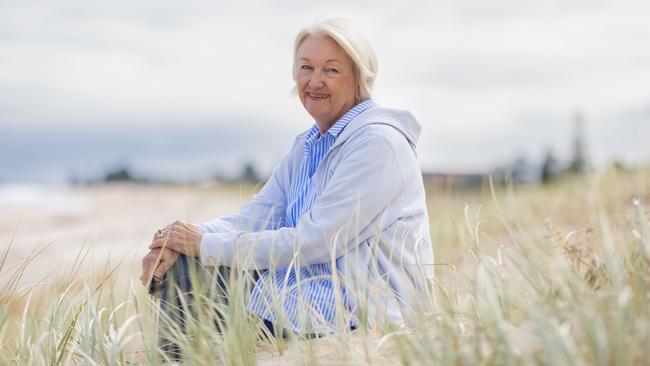
The Australian is turning 60 and we invite you to celebrate with us. Our first special series to mark the event starts today: Six Decades in Six Weeks, counting down to the 60th birthday of the masthead on July 15. Every day for the next six weeks we will bring you a selection of The Australian’s journalism of the past 60 years, from news stories to features, pictures, commentary and cartoons. Plus stories don’t end when they hit the news: Fiona Harari will also retrace a story from each of the past six decades.
No one will ever know how great a champion Marlene Chapman could have become. Once one of the world’s fastest backstrokers over 100m, the story of her swimming career seems to have died as swiftly as her sporting future – abruptly, harshly and unfathomably.
This time in 1964, when she was Melbourne schoolgirl Marlene Dayman, she was bathing in good fortune. Four years after taking to the pool to rehabilitate a broken wrist, she was blitzing towards the upper ranks of one of the nation’s most admired sports.
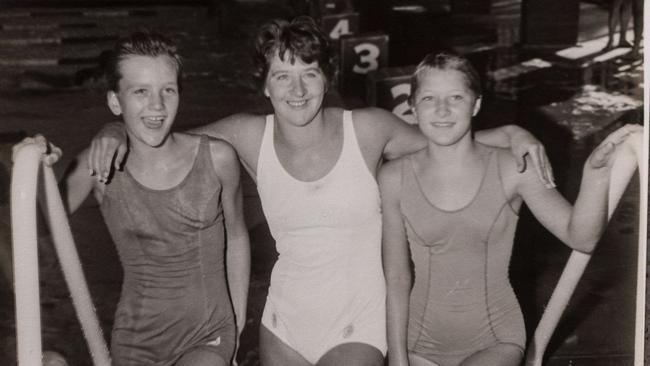
In March 1964, she was named as one of 46 swimmers to represent Australia at the Tokyo Olympics. At 14, she was one of the team’s youngest.
“The Olympics was a fantastic experience for me,” she says, now 74, from her Adelaide home. “It had an amazing effect on my whole life.”
Less than 20 years since the end of World War II, Tokyo was as exotic as it was organised, but for a teenager from suburban Melbourne the greatest allure was the once in a lifetime opportunity Olympic selection seemed to present.
And so before competition had even begun, and three days before she was due in the pool, she made a decision that would alter her life’s trajectory.
“Somebody suggested they were going to march at the opening ceremony and if anyone wanted to go with them we could.” In the best part of a lifetime since, she has forgotten who made that call, which was at odds with a team directive that, to avoid fatigue, no athletes could join the march of nations if they were competing in the first three days of the Games.
“At the time you have a lot shorter sight,” she says of her teenage self, and the lack of anything resembling a future pathway for her swimming. “You don’t realise there might be another chance to go to an Olympics. It was just something I wanted to do there, to march.”
So she joined three other keen teammates – teenagers Linda McGill and Nan Duncan, and multiple gold medallist 27-year-old Dawn Fraser – and headed for the team bus.
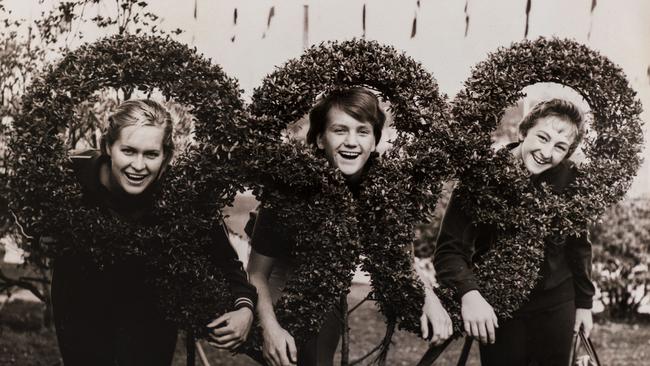
The former were spotted by officials and removed before the departure. The team’s youngest swimmer, however, and its most famous both remained on board. “I think Dawn and I were sitting with people reading the newspaper – probably The Australian – so we were behind these newspapers on the bus.” Shielded from the gaze of officials, they were driven to the opening ceremony where they joined the Australian women’s contingent in the march.
All these years later, Ms Chapman still smiles at the memory of the long minutes that ensued as she entered the arena with the world’s best athletes. “It was fabulous, absolutely fabulous, the pageantry, and it was very well organised. It was a great experience,” she says. “But they had consequences.”
Word soon spread around the Australian camp about the swimmers who had joined the opening ceremony. “We knew we were in strife and they (team officials) said they were going to report us. We didn’t know what was going to happen.”
News stories from the second day of competition warned of possible suspensions for the defiant marchers. But with a report to go to the Australian Swimming Union only after the games ended in October, the young swimmer remained at her first Olympics, scoring an impressive sixth in her backstroke heat, her form improving as months passed without any official word on what penalty, if any, she might face.
At the Australian Junior Swimming Championships in Melbourne in February 1965, Marlene Dayman won six gold medals, one newspaper noting that her three Australian records “could mean the dawn of another (Dawn) Fraser”.
But that possibility was soon cauterised. The following month, at a meeting in Hobart, the Australian Swimming Union expelled the four females – those who had marched and those who had attempted to do so – from the Australian Amateur Swimming Association for their alleged misbehaviour.
In its inaugural action against Australian swimmers, the ASU banned Dawn Fraser, who had recently been named Australian of the Year, for a decade. Although they had been nabbed at the bus and had not actually marched, 19-year-old Linda McGill, and Nan Duncan, 17, were banned for four and three years respectively. The expulsions meant that none of the swimmers could compete anywhere in the world for years.
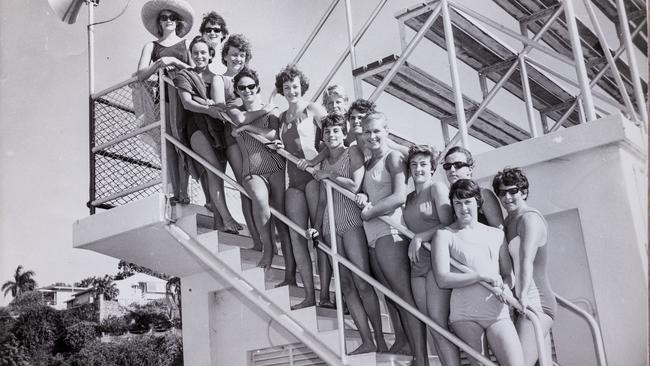
“The union is very jealous of its good name and the reputation of the members of its team, both in and out of the water. It is conscious of its responsibilities to parents who entrust their children to its care,” the ASU said in a statement published in The Australian in March 1965. “It is determined that it will maintain a strong discipline, especially among the members of its team who represent Australia overseas.”
For having marched in the opening ceremony and for having been away from her quarters without permission, Marlene Dayman was banned from all swimming competitions for three years. For a 15 year old, it was effectively a life sentence.
“It was something huge to deal with at that age because your whole life changed overnight,” she says now. Unable to compete, she lost contact with many of the swimming friends she had seen so regularly at meets. No longer able to attempt qualification for the 1966 Commonwealth Games, she could not justify her single mother making the cross city trek six times a week from their suburban home to training.
“To continue swimming would have been impossible because you’re relying on your parents and then there would be no guarantee that you would be able to find that form again, so it was just too difficult to continue,” she says. “Once I was suspended I think she (Mum) probably thought basically there was no point. And it would have been too much to ask.”
In her bewildered teenage eyes, the ban seemed like a lifetime. “It was terrible. We tried to protest but there really wasn’t an easy avenue to do that.” So she just stopped training. And like that her swimming career ended. “There was no choice,” she says simply, “because I couldn’t compete.”
Her parents were both hugely supportive. But she was also a teenager of her times, with little if anything in the way of emotional support – a huge contrast to the welfare-driven teams built around top athletes today.
“Life just went on and you had to deal with it.”
Amid widespread criticism of the severity of the decisions, some of the other swimmers appealed. Dawn Fraser’s decade long expulsion was subsequently reduced to four years. Today she is regarded as one of the greatest swimmers ever. Nan Duncan’s ban was lifted in 1966 and she later returned to the pool. As the first Australian to swim the English channel, Linda McGill became an acclaimed marathon swimmer.
While all four athletes had been assured by their swimming union that they could apply to compete again once their bans had ended, for the youngest of them, it was too late.
“The suspension I am sure that affected me hugely,” Ms Chapman says. “You don’t process it at the time but I look back now and I think it must have been quite traumatic for me because you lose your friendship groups, and you lose what you’re doing in life … just knowing who you were.”
Years later she returned to the water as a keen masters rower. She married, had two sons and five grandchildren, attended university as a mature age student, and spent many years working as a personal assistant at a private school in Adelaide. For her fiftieth wedding anniversary this year she will return to Japan this month for the first time since 1964. But she never again swam competitively.
With the benefit of 60 years of hindsight, should she have marched? “I don’t think that it should have been the big deal that it was. However, in that it was the big deal it was, I don’t think I should have marched. Because even though the consequences were way more than they should have been, it changed my life – and it would have been nice to have continued to swim.”
She does not, however, want anyone to think that her stint in Tokyo was anything but wonderful, suspension not withstanding. Her time as a competitive Olympian may have been unexpectedly short, but it remains significant, and while reconciling that joyous period and its brutal aftermath has been a struggle, mostly she thinks back on that time with pride.
“The Olympics was a fantastic experience for me, despite the suspension. It had an amazing effect on my whole life,” she says with a smile. As for its abrupt end, she says pragmatically: “You can’t count for what might have been – because it wasn’t.”





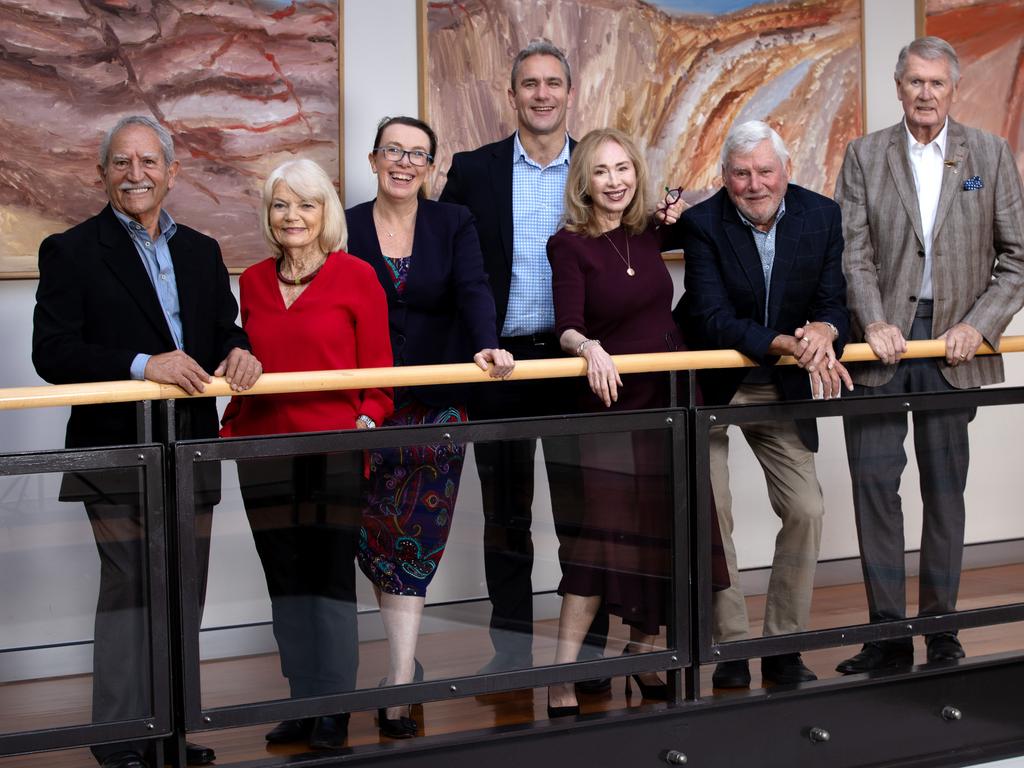
To join the conversation, please log in. Don't have an account? Register
Join the conversation, you are commenting as Logout